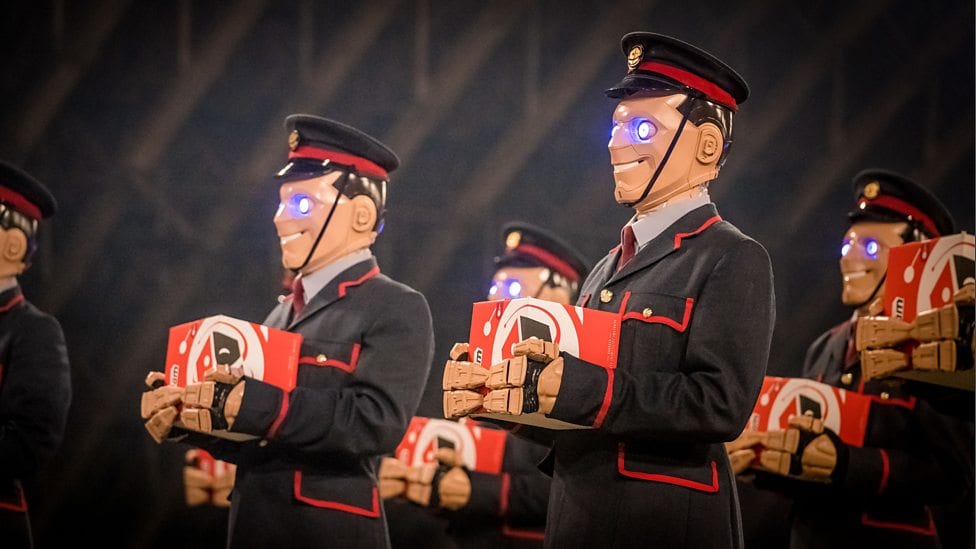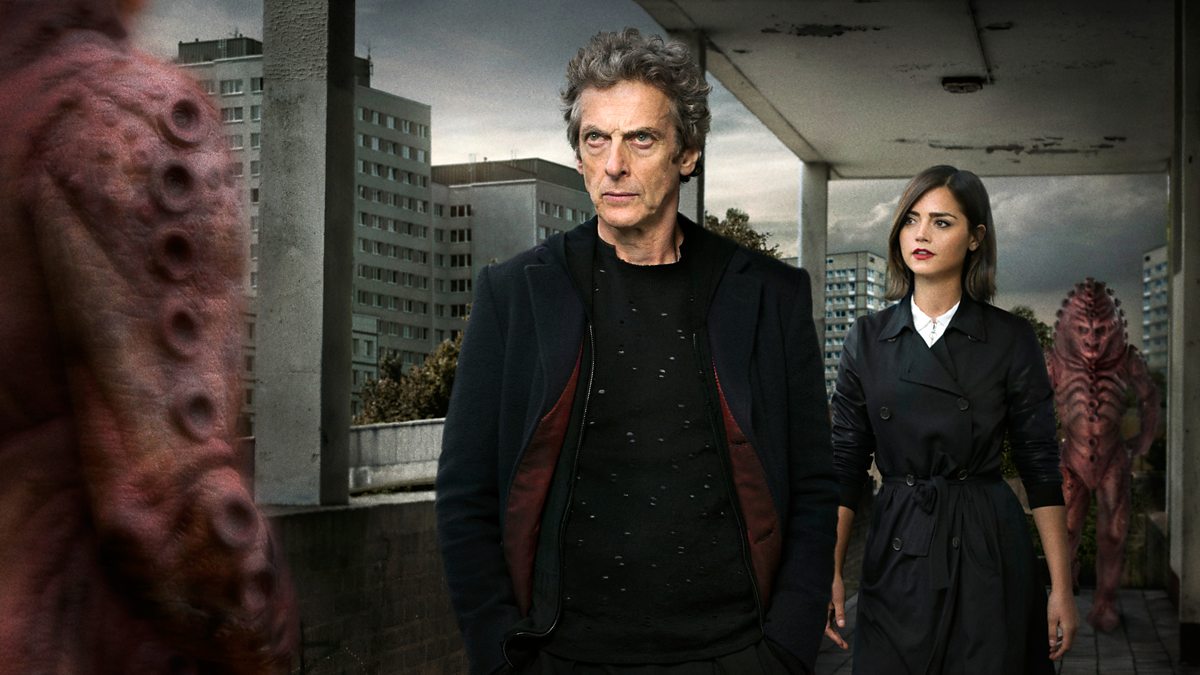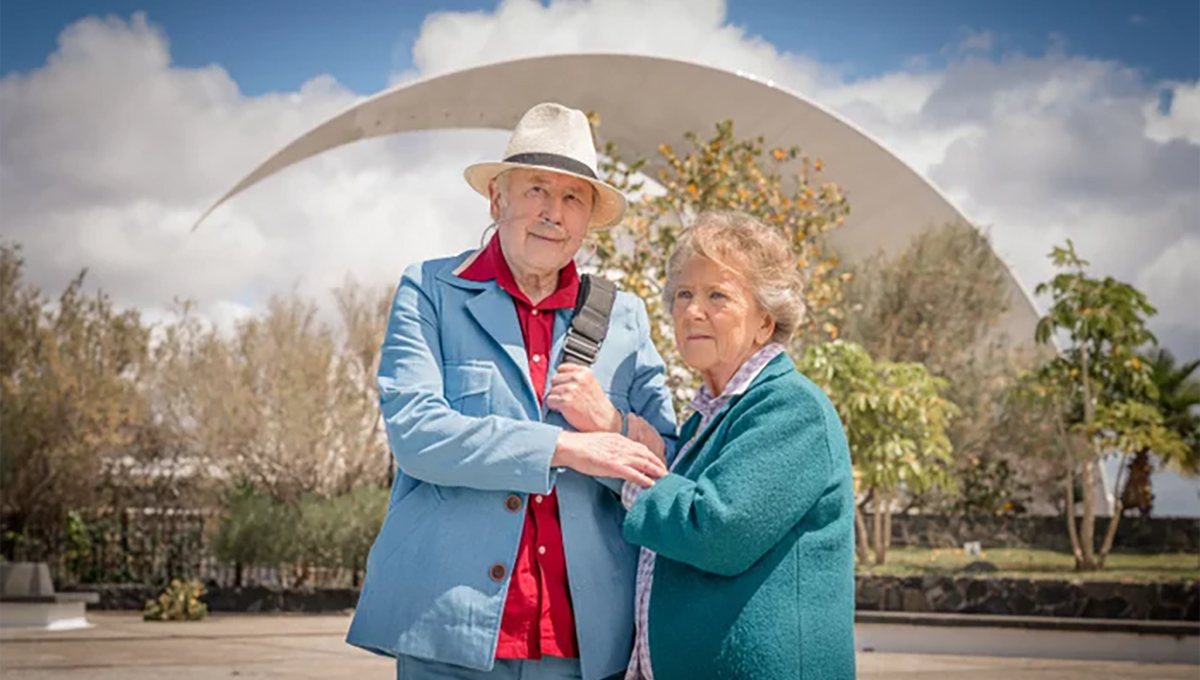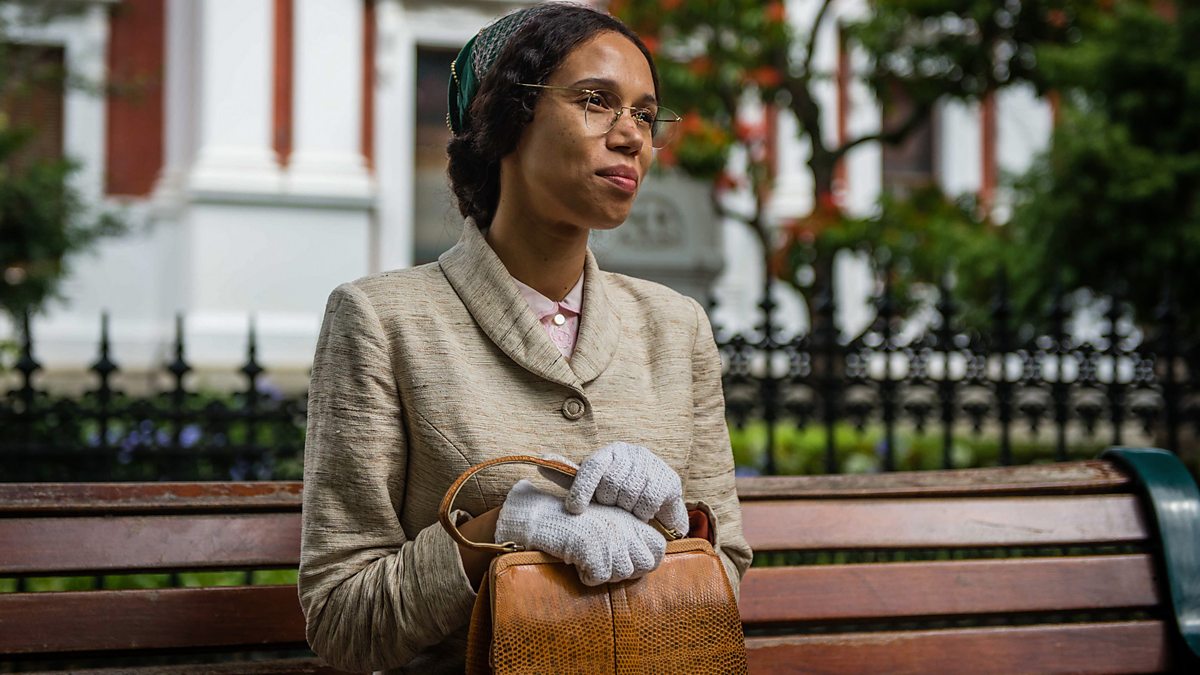Has Doctor Who always been ‘political’? Well, it’s certainly been thought-provoking, if nothing else! Here are five of the most ‘challenging’ Doctor Who stories in the Whoniverse…
5. The Green Death
The producer Barry Letts had strong opinions on environmental issues, and so it’s perhaps no surprise that one of his most popular Doctor Who stories put this topic at the front and centre. In ‘The Green Death,’ an evil megacorporation known as Global Chemicals is letting waste from its plant tarnish the Welsh countryside, whilst also killing miners and turning maggots into giant, flesh-eating monsters.

The Doctor’s friend and companion Jo Grant travels to Wales to team up with a bunch of activists from the ‘Nut Hutch’ to fight the corporation and fly the flag for a greener future. Indeed, such is Jo’s passion for the environment that she tackles her friend the Brigadier head-on when he says the world needs more of the cheap petrol that Global Chemicals is promising, saying: “No! No, look it’s time to call a halt! It’s time that the world awoke to the alarm bell of pollution instead of sliding down the slippery slopes of… of… of whatever it is!”
And given that a good percentage of the viewers will have owned petrol-driven cars, this was certainly a thought-provoking statement!
4. Kerblam!

The next of our Doctor Who stories concerns a massive ‘online’ retailer which delivers packages far and wide from enormous warehouses, which are staffed by largely unhappy workers who are being treated unfairly. Does it sound familiar?
Certainly, it wouldn’t have taken the viewer long to guess which famous retailer this may have been referencing. The retailer in question had certainly been the subject of news stories and documentaries which mirrored the scenario laid-out in ‘Kerblam!’ although discerning what is ‘true’ can often be harder. Nonetheless, ‘Kerblam!’ nailed its colours to the mast and threw a massive spotlight on the ethics of mass consumerism and, interestingly, its packaging.
And like all good Doctor Who stories, there is of course a twist at the end, and it’s quite a clever one. It must have made for an interesting wrap party…
3. The Zygon Inversion

Many Doctor Who stories go big on the messaging, and some are none-too-subtle. ‘The Zygon Inversion’ is one of these, and features one of the most famous (and possibly the most beloved) moments of the Peter Capaldi era: the Doctor’s anti-war speech.
In the adventure, the Zygons have been trying to start a new life on Earth and live side-by-side with the human race. But it hasn’t been going well, and some of the Zygons have been ‘radicalised’ and have formed terrorist splinter groups which seek to dominate the planet. All of this culminates in a showdown in UNIT‘s famous Black Archive, where the humans and the Zygons are presented with a choice. There are a pair of ‘Osgood boxes’ which, when pressed, will have permanent, potentially devastating consequences for humans and Zygons alike.
This is what triggers the Twelfth Doctor’s response. “This is a scale model of war,” he declares. “Every war ever fought, right there in front of you. Because it’s always the same. When you fire that first shot, no matter how right you feel, you have no idea who’s going to die! You don’t know whose children are going to scream and burn! How many hearts will be broken! How many lives shattered! How much blood will spill until everybody does what they were always going to have to do from the very beginning. Sit down and talk!”
Hard to argue with…
2. Orphan 55
Many Doctor Who stories in recent years have taken the decision to ‘break the fourth wall.’ And whilst some Doctor Who stories like ‘The Zygon Inversion’ may have done this discretely, the 2020 adventure ‘Orphan 55’ goes all-out and addresses the viewer directly. Well, almost. The Doctor is technically speaking to Yaz, but as she talks her dialogue becomes more of a monologue, played over shots of a devastated planet inhabited by mutated zombie monsters which (spoilers) used to be humans and (also spoilers) the planet used to be Earth. The episode is all about climate change, and the dangers of nuclear warfare.

(C) BBC
This is what the Doctor says. “You want me to tell you that Earth’s going to be okay? Cos I can’t. In your time, humanity is busy arguing over the washing up while the house burns down. Unless people face facts and change, catastrophe is coming. But it’s not decided. You know that. The future is not fixed. It depends on billions of decisions, and actions, and people stepping up. Humans. I think you forget how powerful you are. Lives change worlds. People can save planets, or wreck them. That’s the choice. Be the best of humanity. Or…”
…become a mutated zombie monster. That’s the implication, anyway, as the speech ends on a shot of the story’s baddie.
1. Rosa

Doctor Who stories have never been afraid to tackle the subject of race and prejudice. The Daleks, for example, were an allegory of the Nazis from the beginning; they even performed Nazi salutes as they patrolled the conquered ruins of London in ‘The Dalek Invasion of Earth.’
But the last of the Doctor Who stories on this list is an adventure which tackled racism head-on. ‘Rosa’ is all set against the backdrop of Alabama in the 1950s, where racial segregation is commonplace. The story revolves around the birth of the civil rights movement, where Rosa Parks refused to give up her seat on a bus for a white passenger, triggering the Montgomery bus boycott. And like all good Doctor Who stories, there is a meddling time traveller thrown into the mix; in this case, it’s the villainous Krasko, who’s determined to prevent the bus incident from ever happening, and stopping the civil rights movement in its tracks.
And although ‘Rosa’ is all about a real historical event, it can sometimes feel like science fiction, so alien is the concept of having separate seats / restaurants / restrooms for certain colours (in the West, at least.) But racism does of course still exist, and ‘Rosa’ is particularly thought-provoking in that it prompts the viewer to consider how this situation arose in the first place, and could it happen again, and what might their own prejudices be.
And so, like all thought-provoking Doctor Who stories, ‘Rosa’ doesn’t always make for comfortable viewing, but it ends on a positive note, and there’s a clever twist in which the Doctor and her companions face a crippling moral dilemma.
Can you think of any other thought-provoking Doctor Who stories you would add to this list? Let us know in the comments below.









What about Genesis of the Daleks? The Dr’s “do I have the right” moment……
Yes definitely!